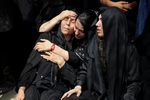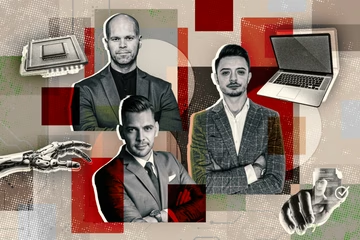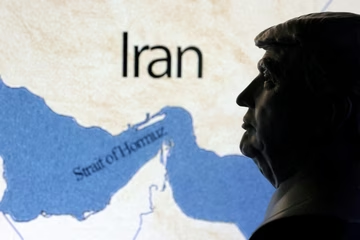DPC submits intervention to ECHR in Kovacevic v. Bosnia, highlighting structural issues in Dayton framework

The Democratization Policy Council (DPC) has filed a third-party intervention and submitted detailed observations to the European Court of Human Rights (ECHR) in the case of Kovacevic v. Bosnia and Herzegovina. In its submission, DPC raises critical concerns about the constitutional framework established under the Dayton Peace Agreement and its implications for equality, governance, and the European integration process of Bosnia and Herzegovina (BiH).
The case revolves around Slaven Kovacevic, a citizen of Bosnia and Herzegovina, who claims that his right to vote has been violated because, as a resident of the Federation of BiH who does not identify as a member of a "constituent people" (Bosniak, Croat, or Serb), he is restricted from voting for certain political positions, including the Presidency of Bosnia and Herzegovina. The ECHR ruled in August 2023 that Kovacevic’s rights had been violated, and the ruling has since sparked significant political and legal debates in BiH.
DPC’s Observations
In its intervention, DPC argues that the Dayton framework, while initially designed to end the war and create a foundation for peace, has become a significant obstacle to democratic development, equality, and EU integration. The organization highlights that the current constitutional setup entrenches ethnic divisions, reinforcing rigid political structures that marginalize citizens who do not identify with any of the three constituent peoples. This setup, DPC states, perpetuates discrimination and limits the ability of citizens to envision or pursue a more inclusive and democratic system.
DPC further emphasizes that these systemic issues have led to widespread dissatisfaction among the populace, as evidenced by low voter turnout and public protests over the years. According to the organization, political elites exploit the existing framework to consolidate power while stoking ethnic divisions. Such behavior is reinforced by international actors' failure to promote reforms aligned with European standards consistently.
Dayton’s shortcomings and missed opportunities
The submission traces the evolution of the Dayton framework, noting that it was never intended to be immutable. DPC points out that Dayton’s provisions were a starting point for building a functional, multiethnic democracy. However, over time, reforms stalled, and the international community shifted its focus from state-building to maintaining a status quo that benefits entrenched political elites.
DPC criticizes the use of the High Representative’s Bonn Powers in ways that, at times, strengthened ethnic divisions rather than promoting institutional functionality and integration. The organization takes particular issue with High Representative Christian Schmidt’s imposition of changes to the Election Law and Constitution of the Federation of Bosnia and Herzegovina on the night of the 2022 elections. While some measures sought to unblock political processes, others entrenched ethnic-based political structures, according to DPC.
Call for reform and ECHR’s role
DPC warns that overturning the ECHR's decision in the Kovacevic case would set a dangerous precedent, effectively limiting the ability of citizens to advocate for constitutional reforms in line with international human rights standards. The organization urges the court to maintain its stance that the existing framework violates fundamental rights and to support efforts for systemic reform.
The intervention also underscores the need for the European Union and other international actors to prioritize constitutional reforms that enable BiH to meet EU accession criteria. DPC notes that such reforms are not only necessary for advancing EU integration but also for addressing the widespread disillusionment among BiH’s citizens.
Broader implications for governance and peace
DPC’s submission stresses that the continued entrenchment of ethnic divisions undermines the rule of law, democratic governance, and social cohesion in BiH. It warns that the status quo risks perpetuating instability and preventing the country from realizing its full potential as a functional democracy.
In its conclusion, DPC calls on the ECHR to consider the broader context of the Kovacevic case and to reaffirm the principles of equality and non-discrimination. The organization argues that the Court’s ruling could serve as a catalyst for much-needed reform, paving the way for a more inclusive and democratic Bosnia and Herzegovina.
The final decision from the ECHR’s Grand Chamber is awaited and will have significant implications for BiH’s political future and its efforts to align with European human rights standards.
You can read DPS's full text at THIS LINK
Kakvo je tvoje mišljenje o ovome?
Učestvuj u diskusiji ili pročitaj komentare





 Srbija
Srbija
 Hrvatska
Hrvatska
 Slovenija
Slovenija



























































